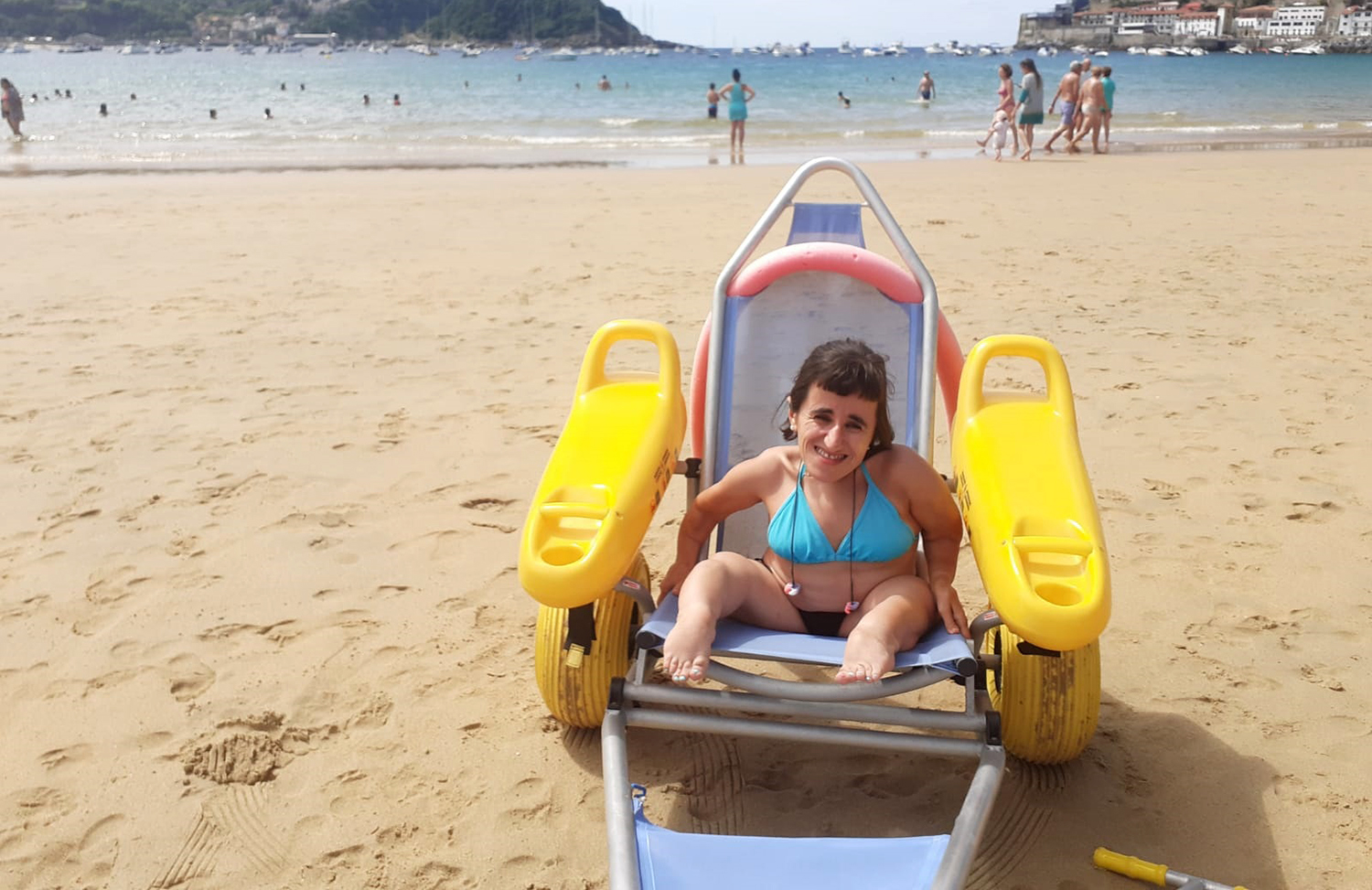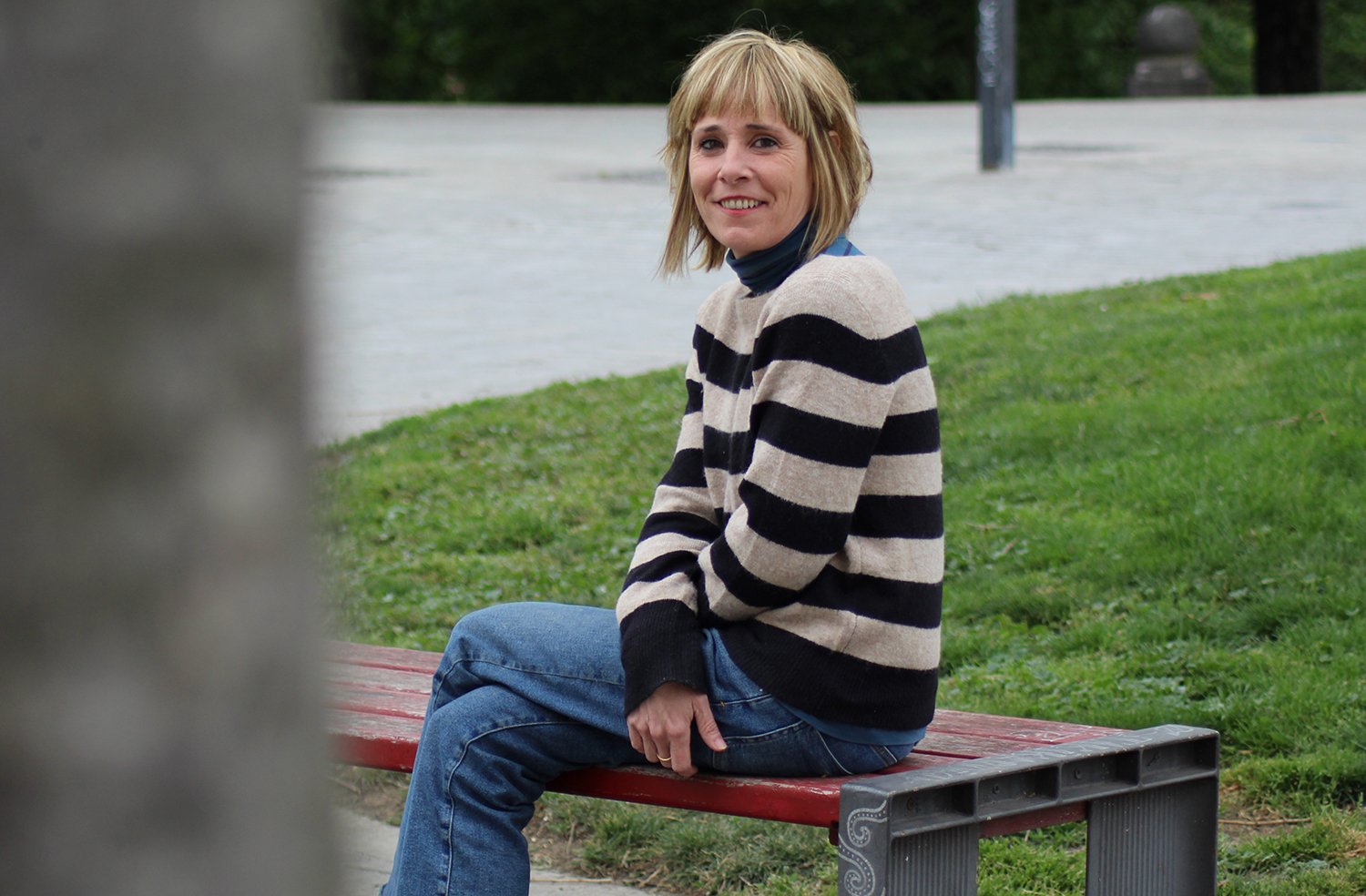"The sea is very close and far away for the disabled"
- Through awareness-raising sessions, lectures and social networks, Juncal Cepeda (Irun, Gipuzkoa, 1986) performs an anti-capitalist activism. As a child, she has not had disabled referents and makes dissemination to help others and create referents. Through social networks, it has underlined the importance of the barrier-free bathing programme, an adapted bathing service.

Cepeda lives within 10 minutes of Hondarribia (Gipuzkoa). The sea seems to be closer to what is believed, but seven years ago it was bathed for the first time in the sea, in the Hondarribia itself. At first he was afraid to bathe at sea, but gradually he has been learning to swim and has also participated in championships: “I have not learned before because of the difficulties we have had in getting disabled people into the water and because family members do not know how to swim. Since I didn’t learn from a young age, I was afraid.”
Over time fear has been declining and today the beach has brought many benefits: “I’ve known the physical capabilities that I can develop to have more autonomy, enjoy and face new challenges.” In addition, the smell and sounds of the sea give you peace of mind: “I wanted to see what water could bring. At first it was very hard and I didn’t enjoy it, but I thought I had to try again to enjoy.”
Use the obstacle free bath service to bathe on the beach. It is a programme aimed at those who need help to enter the water, which is offered on beaches of Getaria (Gipuzkoa), Hondarribia and Donostia-San Sebastián, among others. In the case of Cepeda, with the help of some rescuers, he gets into the water in a chair that goes from the sand to the water: “If you don’t know how to swim, you can stay in the chair in the water. The first time, when the first responders told me no, I was clear no, but then I hung up and played with a float.”
"Institutions should invest money so that there are only lifeguards who take care of adapted bathrooms"
You have to notify in advance of the time and the day you want to bathe. In most cases there are no barriers to the use of the service, but on hot days it is more difficult, as there are fewer rescuers available: “Emergency responders leave their usual work to serve the adapted bathrooms. On hot days the service is very limited.” Cepeda considers that there should be emergency responders expressly responsible for providing this service: “Institutions should invest money so that there are only lifeguards who take care of the adapted bathrooms.”
It believes that investment should also be made in infrastructure. In fact, most beaches are not accessible: “We need good hallways and places where we can be quiet and leave the chair. The hallways of many beaches are next to the sand.” You mentioned Getaria Beach as a nice place. This year a hallway has been set up and a corner has been set in the shadows to be “quiet”. He says that this type of project should be extended to all the beaches: “If we have tools, we have to use them so that we can all enjoy them. Why can some enjoy on the beach and others not? The sea is very close and far away for people with disabilities.”
Need to look at work
It stresses that leisure time must be accessible to all. “To achieve equality, we must have the same opportunities.” He added that everyone will choose what they don’t want to do or what they don’t want to do, but he has encouraged people to try: “Although I don’t like water or I’m afraid at first, I want to encourage people to try. I believe there is resistance on our part, because we do not enter like others.”
For this reason, it is important that people know about this type of service and work in the eyes of society as a whole: “When we enter the water, people look at us. Maybe I didn't get in like you, but you too should see how I got in. We also have to look at the differences. I need a chair, and what?”
A PART OF THE BODY
-Arms. In recent years I have used a lot more. When I was young, I thought they were there because I had been given them, but then I gave them courage. I think we don't know what they're worth. We use our arms to swim, hug, eat...".












